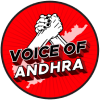Rise in Cases Against Social Media Activists Andhra Pradesh has recently witnessed a sudden increase in cases, with over 100 cases registered within a few days. This development has raised questions about how the authorities are managing public order while upholding citizens’ freedom of expression.
Surge in Cases and Key Incidents
The increase in cases reportedly came after a recent meeting among senior law enforcement officials in Andhra Pradesh, where strategies to address online activism were discussed. Sources indicate that law enforcement received instructions to take action against certain social media posts perceived as damaging to public image. This approach, however, has raised concerns, with civil rights advocates cautioning that such measures could restrict freedom of speech.
Concerns Over Legal Process
Several high-profile cases have brought added scrutiny to this issue. In one instance, former minister Kakani Govardhan Reddy was reportedly charged for forwarding a WhatsApp message. In another case, Meka Venkata Rami Reddy, a YSRCP social media leader in Guntur, was detained following complaints from political opponents. These incidents reflect a pattern of legal action based on social media activity, prompting questions about whether the government’s response is proportionate.
Voices from Political and Social Groups
Many activists have reported being arrested without the “41A notice” required by the Supreme Court, which ensures individuals receive advance notice and a chance to cooperate with authorities. Reports of detentions without these notices have fueled concerns that legal procedures may not be consistently followed.
Reactions from Public and Political Circles
The crackdown has sparked varied reactions. YSRCP Chief YS Jagan Mohan Reddy described the actions as politically motivated, raising concerns about the impact on free expression. Civil rights groups stress that social media is an important space for public dialogue, and singling out activists could discourage open discourse. Others argue that maintaining public order is necessary, though they caution that any actions taken should respect fundamental rights.
Reflecting on Digital Rights and Freedoms
These events highlight an important question: how to balance responsible social media use with respect for freedom of expression. As the situation unfolds, Andhra Pradesh’s approach to managing this challenge will likely shape future views on free expression and online activism.
The public is encouraged to think critically about these developments, as they underscore an ongoing dialogue about individual rights, government responsibilities, and the evolving role of social media in democratic engagement.




